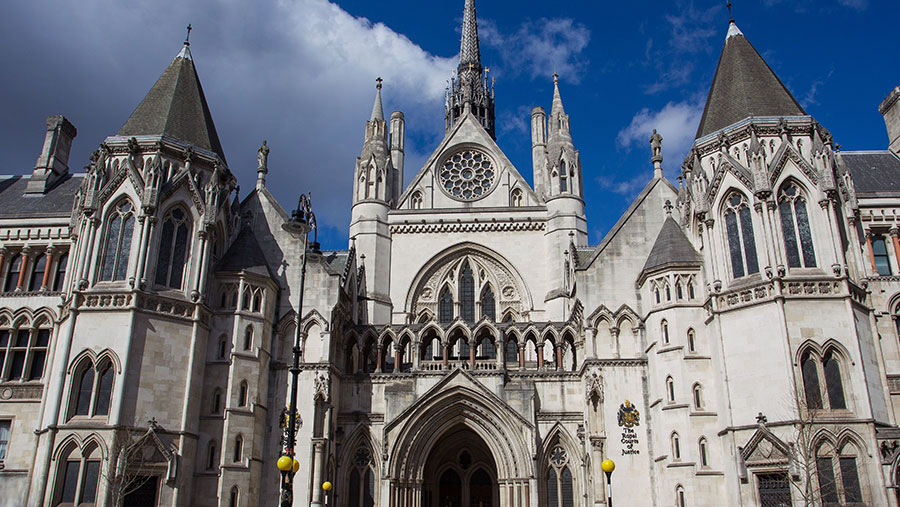Fruit farm wins High Court battle over polytunnels
 © Shutterstock
© Shutterstock A leading soft fruit producer has won a High Court battle with countryside campaigners over plans to erect polytunnels to extend the harvest season.
Withers Fruit Farm, based near Ledbury, Herefordshire, successfully challenged a judicial review against Herefordshire Council, led by the Campaign to Protect Rural England (CPRE).
The review sought to overturn a planning decision that would allow the construction of 11 blocks of polytunnels on 37ha of farmland.
See also: Polytunnels help alleviate pressure on dairy grazing platform
The council decision also permitted the provision of caravan accommodation for 350 seasonal fruit pickers on a nearby 145ha site.
The CPRE had opposed the plans, arguing they amounted to “industrial farming”, which would have a detrimental effect on the landscape, adverse effects on tourism and an unacceptable loss of amenities to nearby residents.
It brought the judicial review, arguing the council’s decision was flawed on a number of grounds, including poor consultation and the fact it had not followed its own polytunnel planning guide.
Application procedure
Herefordshire Council, against which the claim was first brought, conceded that the guidance in the council’s own guide created a “legitimate expectation” as far as the application procedure was concerned.
Law firm Thrings, which was advising Withers Fruit Farm on the dispute, recommended that its client step into the role of defendant.
The fruit producer defended CPRE’s claim on all grounds, including that, where adopted policy prescribes action, the question of weight given by planning decision-makers to documents other than policy papers is discretionary.
Procedural unfairness?
The judge, Mr Justice Stuart-Smith, agreed that the guidance document, not having faced public scrutiny, could not be given the same importance as a formal policy.
The countryside pressure group failed to convince the judge that, in its decision, the council had ignored the visual impact of the project, as well as its effect on local biodiversity, particularly in relation to the bat population.
The final ground to be defended was procedural unfairness, with the CPRE accusing the council of making the planning application’s accompanying reports available too close to the council meeting date.
The CPRE also criticised the absence of an economic need assessment among those reports.
Deeming the time allowed for the review of documents to be reasonable, the judge also held that there was no expectation to make commercially sensitive documents public, provided they were considered by the council officers.
‘Guidance is guidance’
Fred Quartermain, associate planning solicitor at Thrings, said: “We are pleased to see the courts confirm what we knew to be true: that guidance is guidance, and not prescriptive policy.”
George Leeds, who owns and runs the farm with his family, said: “While this challenge to our planning application has been frustrating and delayed investment in the farm, work with local businesses and employment by approximately one year, we are delighted with the overall result.
“It was particularly reassuring for us to see every single point in the judicial review brought by the CPRE rejected by the judge.”
The NFU provided financial support towards Withers Fruit Farm’s legal costs.
One of the UK’s largest producers of soft fruits, Withers Fruit Farm supplies supermarkets such as Tesco, Waitrose, Co-op and Asda.
What is a judicial review?
A judicial review is a type of court proceeding in which a judge reviews the lawfulness of a decision or action made by a public body.
It is not about the rights and wrongs of the conclusion reached, but instead challenges the way in which a decision has been made.
Lawyers are warning that powers to take forward a judicial review may be curbed in future, following a commitment in the 2019 Conservative Party manifesto to look at constitutional reforms.
The manifesto said: “We will ensure that judicial review is available to protect the rights of the individuals against an overbearing state, while ensuring that it is not abused to conduct politics by another means or to create needless delays.
“In our first year we will set up a Constitution, Democracy & Rights Commission that will examine these issues in depth, and come up with proposals to restore trust in our institutions and in how our democracy operates.”
